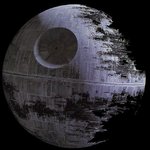Lucky13
Forum Mascot
Here's a question...
Where would we be today, spacewise, if the space program hadn't, well, stopped? Where would we be if we had continued at the pace before '72? Any theories?
Where would we be today, spacewise, if the space program hadn't, well, stopped? Where would we be if we had continued at the pace before '72? Any theories?


 !!"
!!"